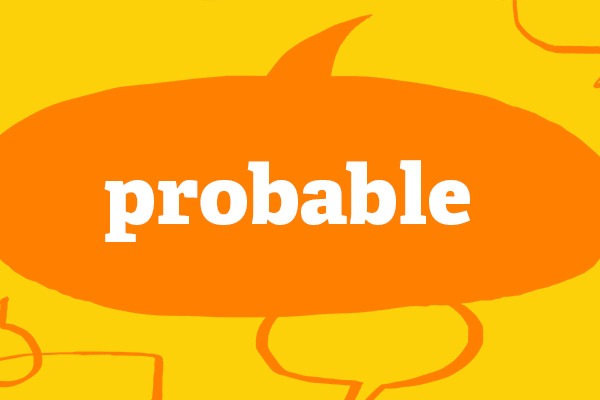This week’s Spanish word of the week is probable.
Probable is an adjective that means likely and you can find how to pronounce it here:
Es muy probable. It’s very likely.
Don’t forget that if you want to express in Spanish how likely something is to happen, you will have to use a verb in the subjunctive form, so es probable que has to be followed by a verb in the subjunctive:
Es probable que llueva más tarde. It is likely to rain later on.
Probable is often translated using probably:
Es probable que llegue tarde. He’ll probably arrive late.
Similarly, poco probable, meaning unlikely, is also followed by a verb in the subjunctive.
Es poco probable que venga. He’s unlikely to come.
Another common way of saying ‘probably’ is to use lo más probable es que… followed the subjunctive (word for word, the most likely thing is that…)
Lo más probable es que se haya olvidado. She probably forgot.
Come back next week to learn a new word!



